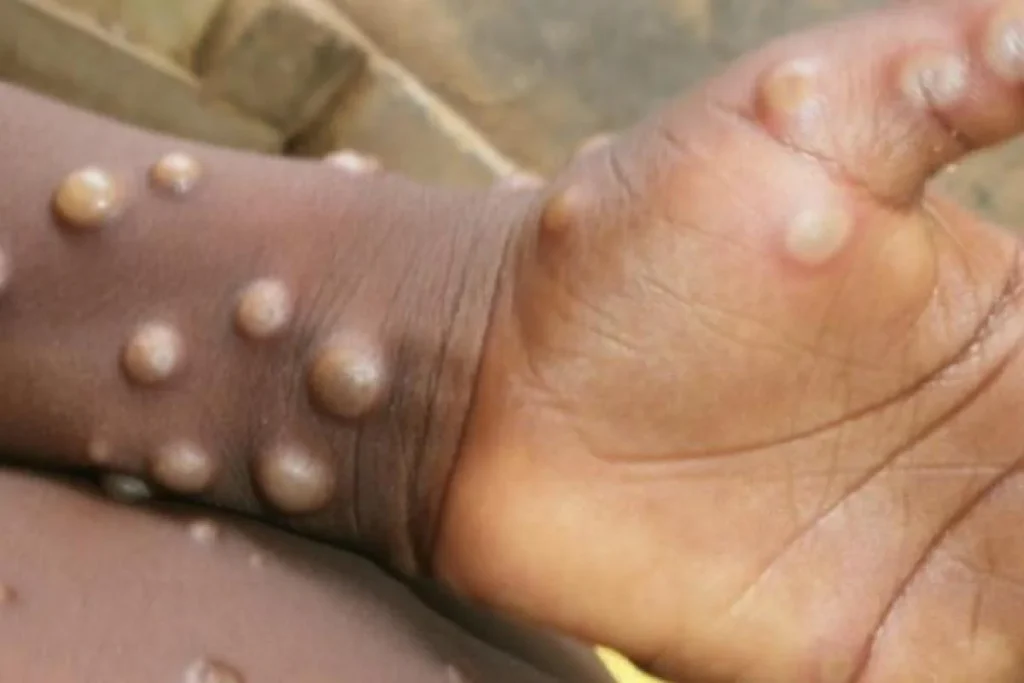
The Africa Centres for Disease Control and Prevention (Africa CDC) has highlighted the need for stronger containment efforts and enhanced global collaboration in response to the ongoing Mpox outbreak.
During a biweekly briefing on Mpox and other infectious diseases, director-general of Africa CDC, Dr. Jean Kaseya stated that the World Health Organisation (WHO) declared Mpox a global public health emergency for the second consecutive year in August, following the emergence of a new variant in the Democratic Republic of the Congo (DRC) that has spread to neighbouring countries.
Kaseya revealed that Sierra Leone has reported its first two cases of Mpox, raising concerns about the virus’s spread across Africa. The infections, confirmed on January 10 in the Western Area Urban and rural districts, involve individuals with no travel history. Currently, authorities are monitoring 25 contacts.
He emphasised that the outbreak adds to Africa’s escalating Mpox crisis, which has seen 77,888 cases reported in the past year, including 16,767 confirmed infections across 21 countries. The Central African region is particularly affected, accounting for 85 per cent of cases and nearly all deaths, with the DRC identified as the epicentre.
“This is a major public health emergency. We are experiencing a sharp increase in cases compared to 2023, which poses a significant threat to public health in Africa,” Kaseya stated.
The current outbreak has resulted in a death toll of 1,321, with a case fatality rate of 1.8 per cent. The emergence of the virulent Clade 1b virus has made children especially vulnerable, underscoring the urgent need for expanded vaccine access. Kaseya noted that the DRC has received 365,000 doses of the modified Vaccinia Ankara (MVA) vaccine but had only administered 55,000 doses by early December. However, efforts have accelerated recently, with over 120,000 doses deployed in the past few weeks.
“The DRC has shifted its strategy from contact-based vaccination to community-wide immunisation in high-risk areas to improve coverage. To further combat the outbreak, Africa CDC has secured Japan’s LC16 vaccine, which will be deployed starting in February. Unlike the MVA vaccine, LC16 can be administered to children, although its intradermal application will require additional training for health workers,” he added.
Kaseya also pointed out that the Mpox outbreak has spread beyond Africa, with China confirming a Clade 1b case on January 9. “This makes it the ninth country outside the continent to report this deadlier variant, following cases in Belgium and other regions. This is an opportunity for global collaboration. Emerging health threats demand solidarity and shared resources,” he said.
While Africa faces the challenges posed by Mpox, Rwanda’s rapid response to a Marburg virus outbreak in 2024 has been hailed as a model for epidemic control. Kaseya indicated that Africa CDC is working to enhance its response to Mpox by expanding laboratory capacity, deploying rapid-response teams and intensifying vaccination campaigns in high-risk areas.
“From now until March, we are focusing on strengthening public health systems to effectively manage this outbreak,” Kaseya stated.
Director-general of the Rwanda Biomedical Centre, Prof. Claude Muvunyi mentioned that Rwanda deployed specialized teams for case detection, contact tracing, and patient isolation, resulting in a case fatality rate reduced to 23 per cent, significantly lower than historical averages. “Rwanda’s experience demonstrates the importance of early detection, regional collaboration and sustained investment in health systems,” Muvunyi said.
Meanwhile, Tanzania has reported nine suspected cases of Marburg virus, with eight fatalities. While five samples tested negative, Africa CDC and the WHO are closely monitoring the situation. WHO regional director for Africa, Dr. Matshidiso Moeti emphasised the importance of timely investigations: “We stand ready to support Tanzania in its efforts to contain the outbreak,” Moeti said.
As Africa grapples with multiple health crises, Rwanda’s successful approach offers hope for effective epidemic management.

